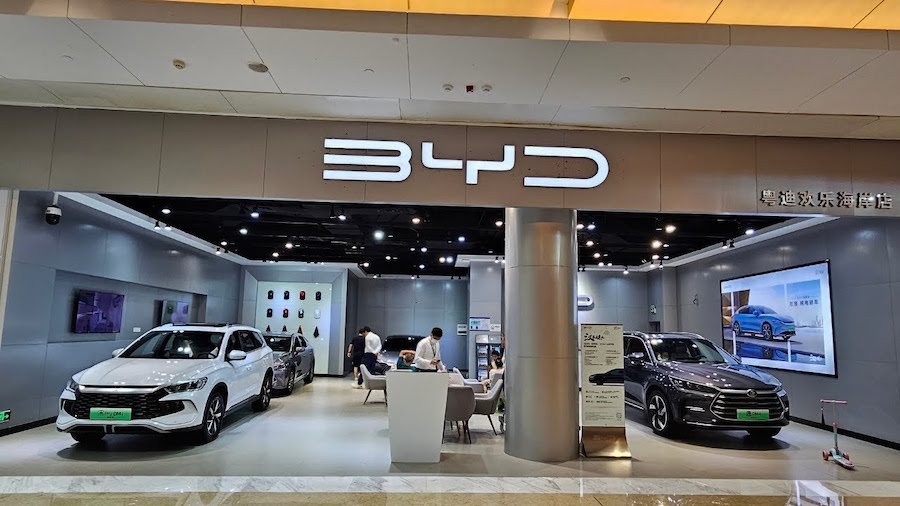BYD got $3.7 billion in Chinese aid to dominate EVs, study says

China’s BYD Co. received at least €3.4 billion ($3.7 billion) in direct government subsidies as part of Beijing’s push to dominate electric vehicles and other clean technologies, according to a new study.
Aid for China’s leading EV maker jumped from €220 million in 2020 to €2.1 billion only two years later, Germany’s Kiel Institute for the World Economy said. BYD also is benefiting from support for local battery manufacturers and rebates for buyers of its cars, according to the report, which comes as the European Union investigates allegedly unfair aid for China’s EV sector.
Subsidies like those handed to BYD “have allowed Chinese firms to scale up rapidly, to dominate the Chinese market, and to facilitate increasing expansion into EU markets,” said the institute, which advises the German government.
BYD didn’t respond to a request for comment.
The EU is facing calls to re-balance trade with China as countries including France flag an economic threat from a glut of Chinese-made products flooding the bloc’s market. BYD and its peers Nio and Geely are expanding in Europe after growing in China, where Western manufacturers including Tesla and Volkswagen are losing market share in a bruising EV price war.
Virtually all of China’s listed companies received direct handouts in 2022, the Kiel Institute said, flagging support for wind, solar and railway rolling stock companies. Industry aid in China is “at least three to four” times higher than in large EU and OECD countries, the group said.
The EU has set up a €40 billion innovation fund to compete with China and subsidies earmarked in the U.S. Inflation Reduction Act. In October, the European Commission launched a probe into whether Chinese aid for companies including BYD, SAIC and Geely had given the country’s industry an unfair advantage. Initial tariffs could come as early as July.
China has labeled the subsidy probe protectionist and says its carmakers are winning the EV race because of superior products. Chinese EV manufacturers are relying on “continuous technological innovation” and advanced local supply chains rather than the government, Chinese Minister of Commerce Wang Wentao said Sunday in Paris.
German Chancellor Olaf Scholz’s trip to China in the coming week represents an “excellent opportunity,” to negotiate with Beijing about its subsidies, said Dirk Dohse, one of the report’s co-authors.
BYD started as a battery maker but invested large sums in researching EV and plug-in hybrid technology. It grew significantly when China’s domestic cars market took off thanks to generous EV purchasing subsidies.
The company, which reported 2023 net income of around 30 billion yuan ($4.2 billion), also has been able to undercut Western manufacturers on price in China. Its Seagull hatchback that comes with a 10-inch rotating touchscreen retails for under $10,000.
Related News
